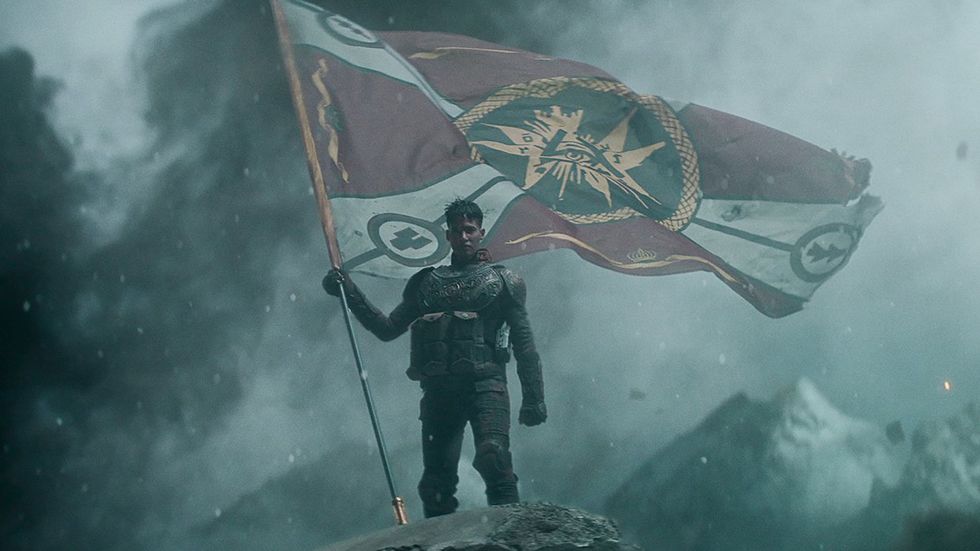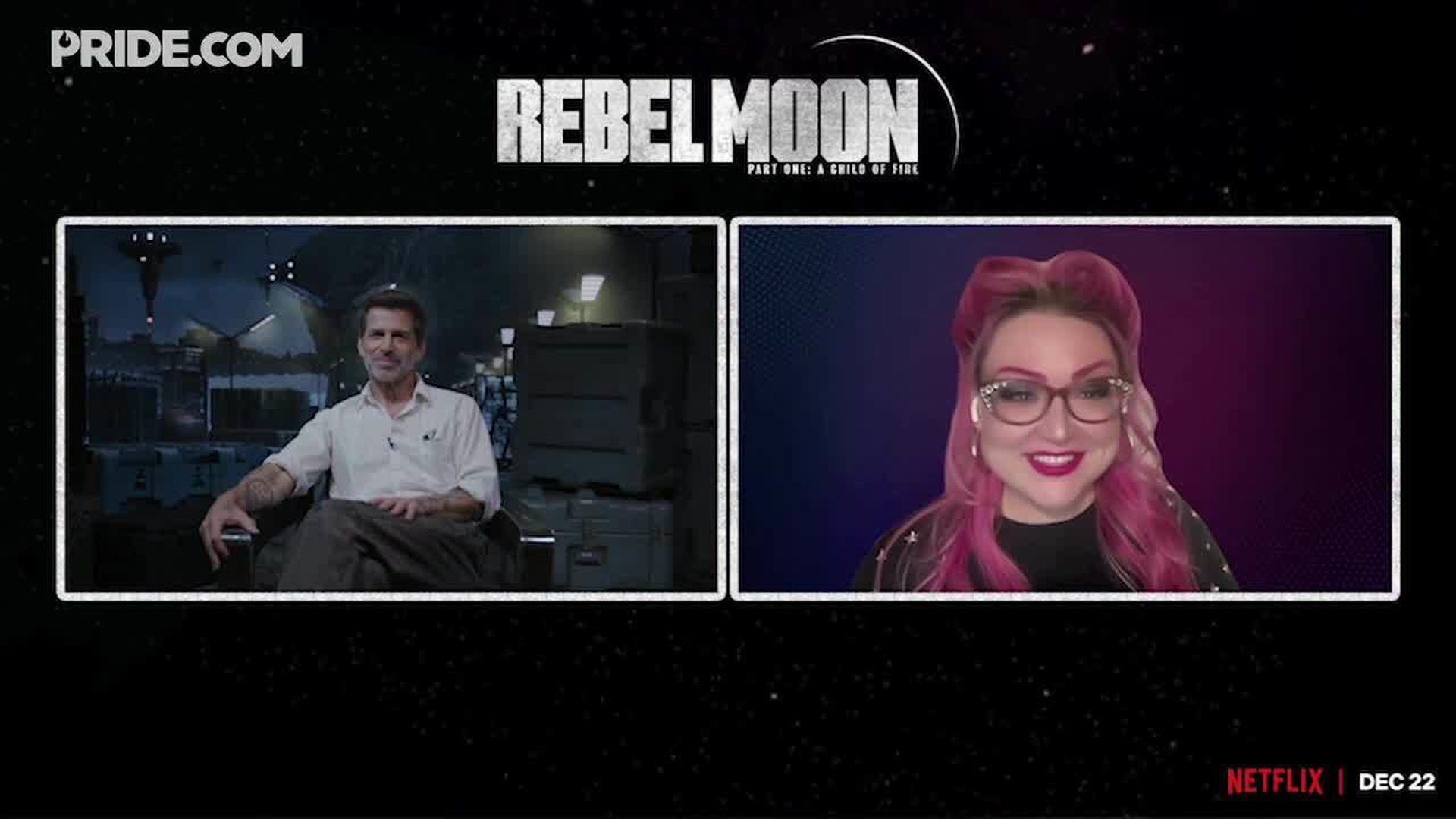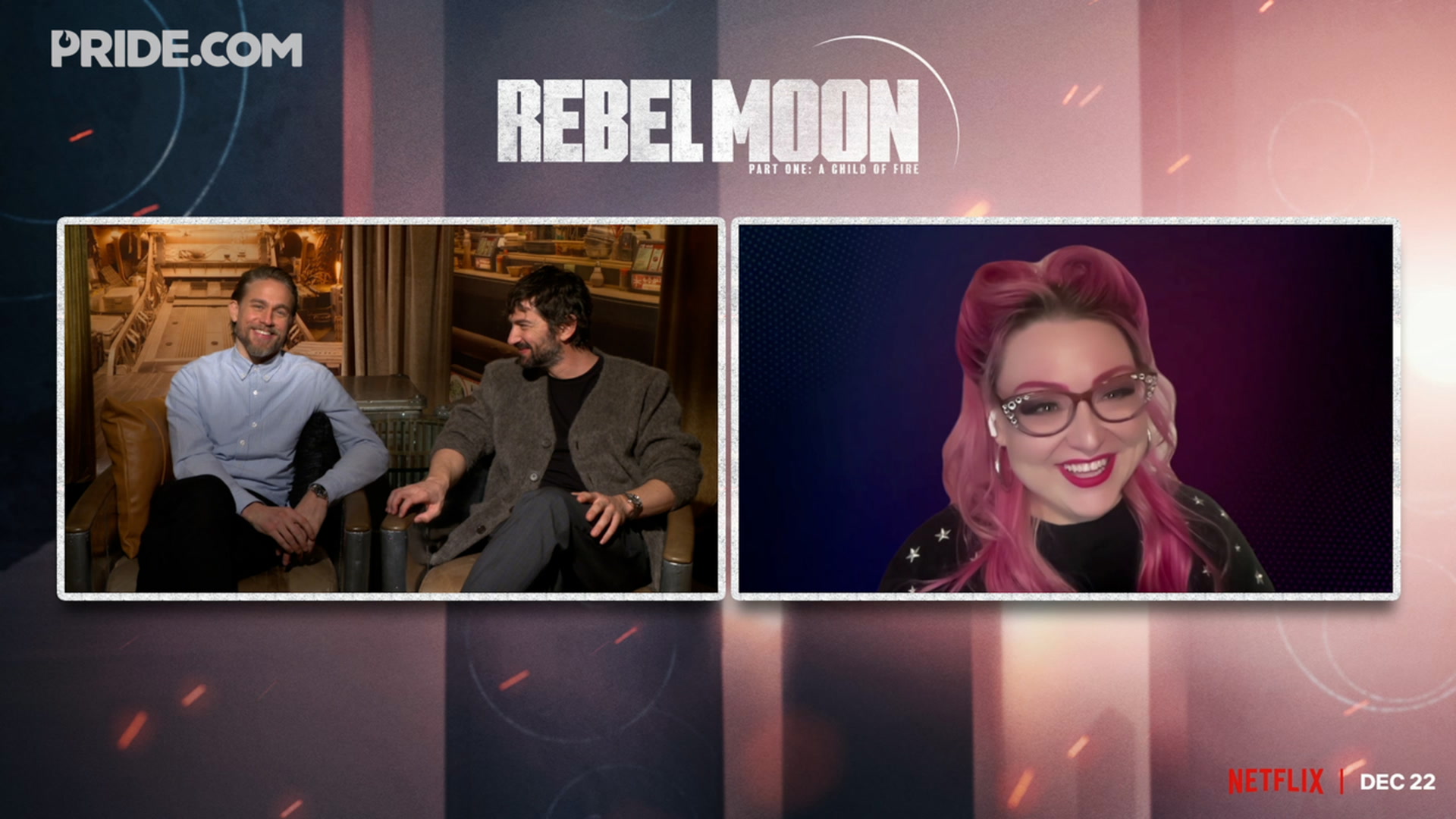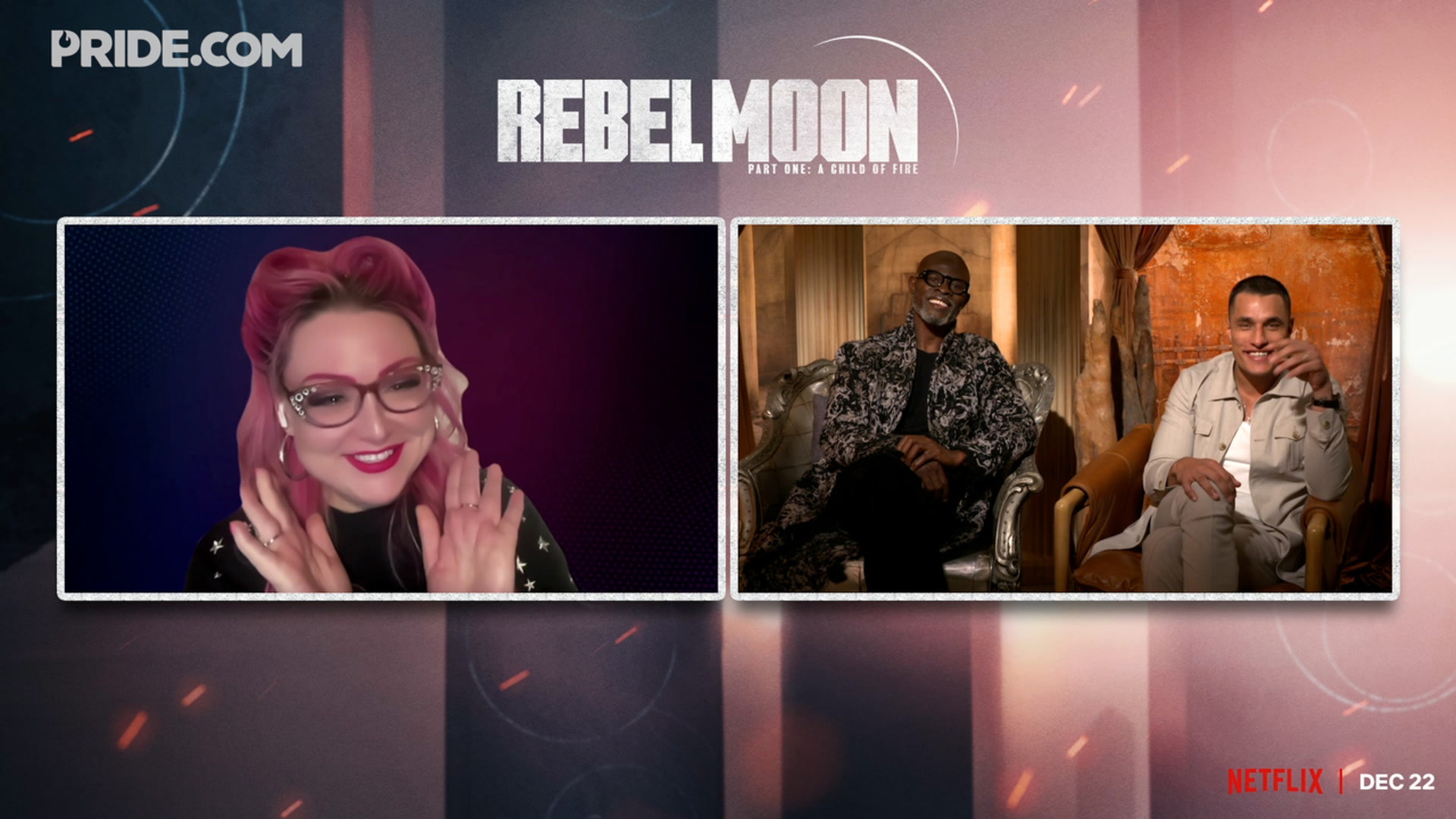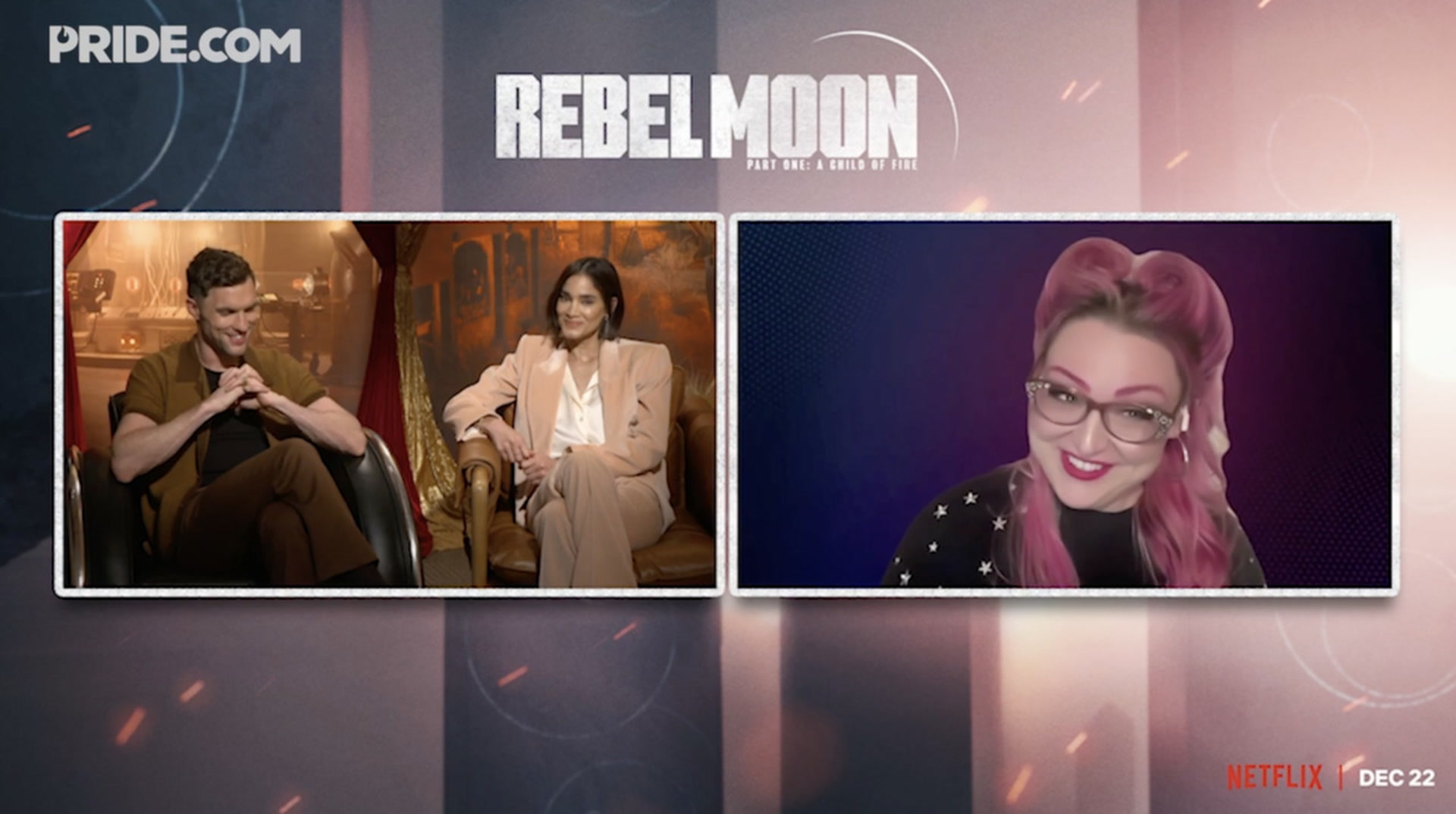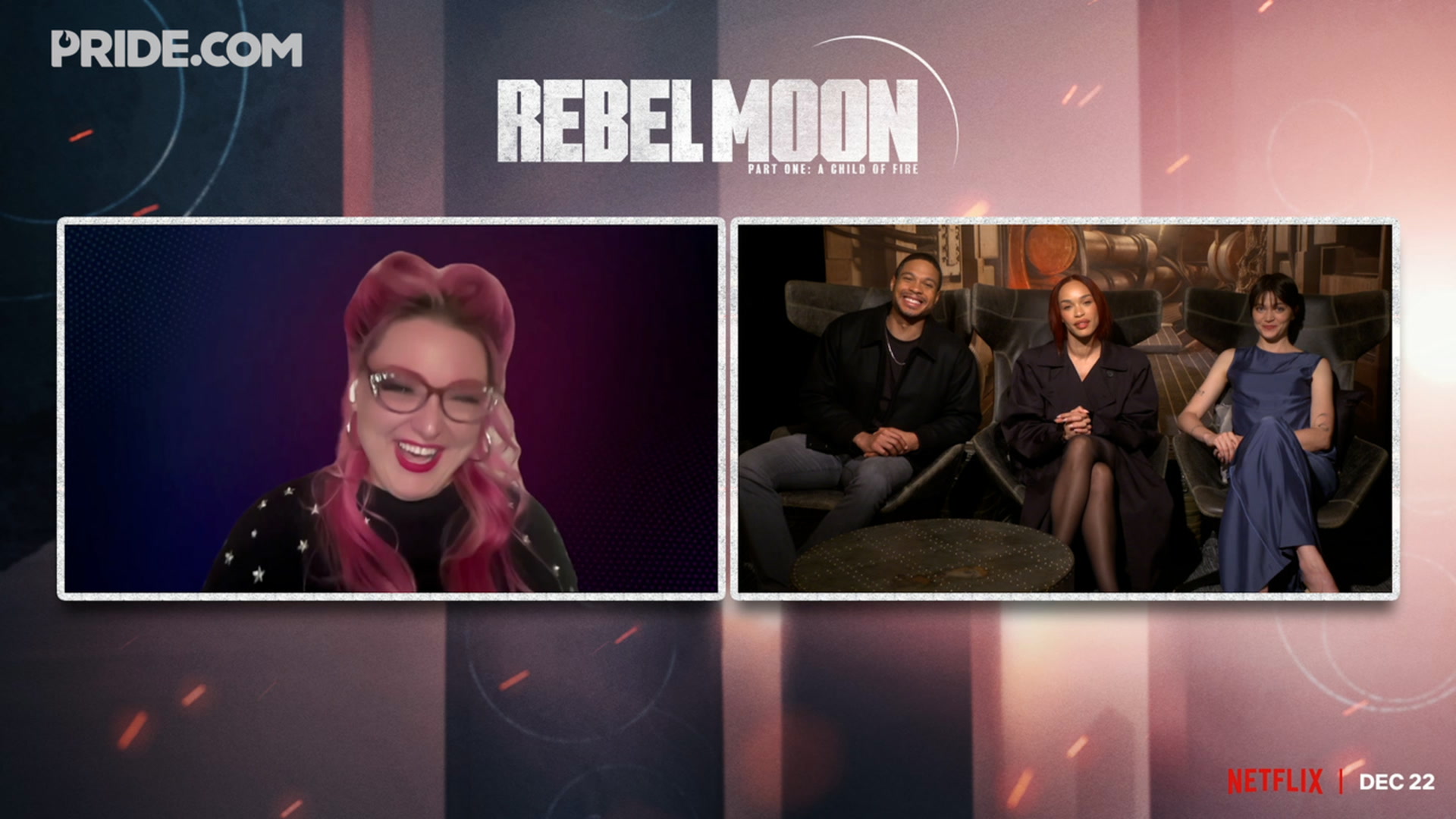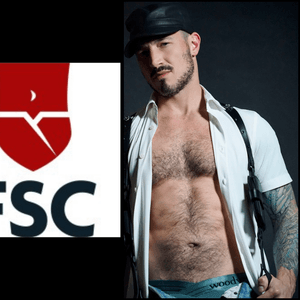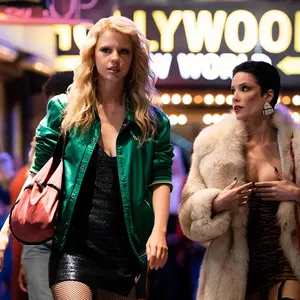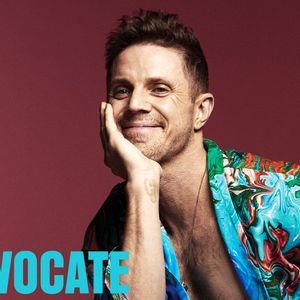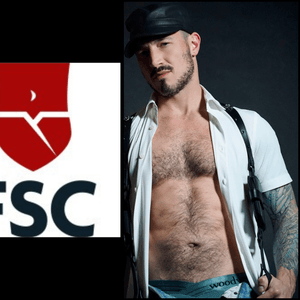One of the great powers of genre filmmaking is the way it can speak in metaphor and theme about uncomfortable, controversial ideas without arousing the audience’s reflexive defenses.
So while dramas may soak up all the acclaim (and, frankly, all the air out of the room) come award season, it’s often sci-fi, fantasy, or horror films that have confronted and dismantled the most ideas, because they can tap dance on that third rail without ever breaking a sweat.
Today the highly anticipated space opera from Zack Snyder, Rebel Moon - Part One: A Child of Fire, arrives on Netflix. And it will be divisive. Fans of Snyder’s work will find plenty to love in the film, which is perhaps his most Snyder-y work yet, while critics of his oeuvre will no doubt feel validated in their opinions as well.

Courtesy of Netflix
But love it or hate it, to watch Rebel Moon is to absorb a myriad ideas and themes that are timeless, but also incredibly timely, which makes for a poignant and thought-provoking experience (Snyder haters don’t @ me, I’m not interested) regardless of your subjective opinion of whether or not you liked the film. (For the record I did.)
That exploration of deeper meanings and reflections of the world was not lost on the cast. Rebel Moon follows a young woman named Kora (Sofia Boutella) with a dark past who has somehow stumbled into a better, more bucolic life on a distant planet, Veldt. All of this is disrupted when Noble (Ed Skrein), a sadistic general in the Mother World’s army — which itself is a fascistic empire colonizing the known universe — arrives on the planet with the intent to strip it of all its resources leaving her community to wither and die. Rather than lie down, or simply run away, Kora begins amassing a group of rebels from across the universe, each with their own ax to grind with the Mother World, to fight back against the overwhelming odds.

Courtesy of Netflix
Despite its complex world-building and sci-fi aesthetic, it’s a classic tale, one as old as myth itself, and one that speaks to the innate nature of man. “Freedom is tenacious, and thank God it is,” Snyder tells PRIDE. “It is the natural state of the human creature to express themselves freely.”
And part of that, Synder explains, is sexual and gender expression. While the film doesn’t linger on this point (and it’s not perfectly depicted), it is a part of the world-building that Snyder did while conceiving of this universe. “Under the thumb of the Mother World, maybe not as much, but under the free loving people of Veldt and the free universe what it’s all about is about sort of expression,” Snyder adds. “I’m a huge advocate of that sort of point of view and that would be reflected in the non-oppressed people of the universe.”
Watch PRIDE's full interview with Zack Snyder below.
Oppression versus freedom is one of the most overt themes of Rebel Moon. Whether it’s the visual of the “free people” toiling in the fields, meanwhile giant ships hover menacingly above them, filling the skyline and waiting to snatch the fruits of their labor. Or a man in literal bonds whose future freedom relies on a wager, but who also soars through the sky atop a mythical creature. It’s the push and pull of two very real parts of human nature. The craving for autonomy and the drive to exploit.
These themes and their environmental impact were especially profound for Charlie Hunnam, who plays the archetypal rogue character, Kai. “We have to stop destroying our planet,” he tells PRIDE.

Courtesy of Netflix
“One of the things that I’ve become very interested in, in the way we’re evolving, is this idea that single planet species are probably doomed to failure; that if we’re going to survive, we need to figure out a way to be a multi-planet species,” he explains. “What we’re exploring in the world of Rebel Moon, is that we’ve actually made that leap of evolution that we are a multi-planet species, and yet we’re continuing to perpetuate the same crimes on the galaxy that we’re in that we’re perpetuating our planet right now.” For Hunnam, the film serves as not just a reflection of our current culture, but a warning for our future, and he desperately hopes audiences come away from the film thinking more about these ideas.
Watch PRIDE's full interview with Charlie Hunnam & Michiel Huisman below.
Staz Nair, who plays Tarak, agrees the environmental messages are some of the film’s most profound and urgent. “We’re looking at a point where we live in a galaxy where grain is the highest currency. How many planets do we have to destroy until we learn that we can’t do it this way,” he tells PRIDE.

Courtesy of Netflix
And it’s not just the planets themselves that face destruction by the greed and ambition of a powerful group, but the people themselves. Djimon Hounsou (General Titus) couldn’t help but relate to this when he read the script. Having been born in Africa, raised in Europe, and now living in the U.S., Hounsou tells PRIDE he has a unique view on colonization and how it is reflected in this film.

Courtesy of Netflix
“The geopolitical tentacles that have been literally pushing and holding the continent of Africa back all these centuries, is quite loud in this story, and so that was my direct connection, if anything, that was the one thing that I hung on to when I joined the team.” Like Hunnam, Housou is hopeful that audiences will find themselves reflecting on “underlying message about the callousness of the treatment of Earth and the underlying message about the indoctrination of the continent of Africa”, as the credits roll.
Watch PRIDE's full interviews with Djimon Hounsou & Staz Nair below.
If those ideas feel too macro, there’s also plenty of commentary on the heart of mankind to be mined in the film. “The line between good and evil runs evenly through the center of every man and woman and human,” adds Nair, who says he can see that story very clearly in Housou’s character. “We look at Titus who started on the wrong side of history and ends up trying to — potentially the cost of his own life — be on the right side. It’s an interesting conversation about how complex we are as human beings.”

Courtesy of Netflix
For Boutella, having the opportunity to play a complex character like Kora was edifying. The Kora of the movie trailer is a powerful, skilled assassin, worthy of the many slow-motion action scenes she gets in the film, but what was more exciting for the actor than the shootouts and hand-to-hand combat, was getting to explore the softness and vulnerability at the character’s core. “Seeing not only just a strong, powerful character on screen, but seeing a woman who is also going through something who is vulnerable, and vulnerable is not necessarily being weak,” she tells PRIDE. It’s also very feminist that women throughout the film get to find and embrace their power — even in a time of war, when violence and sexual violence are a looming threat, the solution proposed here is solidarity.
Watch PRIDE's full interview with Ed Skrein & Sofia Boutella below.
Along with vulnerability, kindness and generosity are also seen as a source of strength, and as the key to fighting back the tides of fascism (a lesson many people could take to heart in life today). Michiel Huisman’s character Gunnar is emblematic of those ideas. “Those parts of him were the parts that were very appealing to me, I thought he would be the character that maybe at the beginning of the story, at least, is most relatable. He’s kind of like the normal guy, so to speak. And the vessel that takes the audience on this journey,” he tells PRIDE. “What makes him a bit softer, actually, in the end, makes him very strong. His kindness and his heart.”

Courtesy of Netflix
The flip side of this, of course, is Rebel Moon’s chief antagonist, General Noble. If the film wasn’t already wearing its socio-political influences on its sleeve, they become very clear when you realize who the character was modeled after: Amon Leopold Göth, whom Synder told Skrein to research in their very first Zoom call. “He was a real man who was a track and field athlete in his school, had no history of violence, no criminal record, middle class, good parents, good home. Then, when the war happened, he joined the Nazi Party and rose through the ranks pretty quickly, and he was sent to a concentration camp very far away. This is the similarity to Noble going into, what he calls the backwater of the galaxy,” Skrien recalls to PRIDE.

Courtesy of Netflix
“It’s about how power can corrupt an individual. Göth committed some horrible, personal, vicious atrocities. That was something really informative to think about, how somebody can have a crack in their moral code.. and once it opens up what’s inside of that dark chasm of the human psyche?” Skrien posits. “And you know, as someone who is the opposite of that is like, Jungian Shadow Work to explore that dark side to explore the shadows of the human psyche. Interesting, and really horrible to inhabit.”

Courtesy of Netflix
Ultimately, Rebel Moon is a story of creating a coalition, and fighting back against that “dark chasm,” no matter the cost. Like I said, it’s a classic tale but one we need because it offers hope, which is valuable always — but perhaps especially now when the odds we’re facing somedays feel like they might as well be of intergalactic proportions.
Watch PRIDE's full interview with Ray Fisher, Cleopatra Coleman & E. Duffy below.
So is Rebel Moon a popcorn film, full of tentpole set pieces and archetypal characters? Sure. But does it offer more than just escape for its two-hour-plus runtime? Does it encourage thought and discussion? Also, yes. Will it be seen and absorbed by a larger, broader, and more diverse audience than your niche Oscar contender? Yep, that too. Therein lies the real power of genre filmmaking.
Rebel Moon - Part One: A Child of Fire is streaming now on Netflix. Watch the trailer below.
